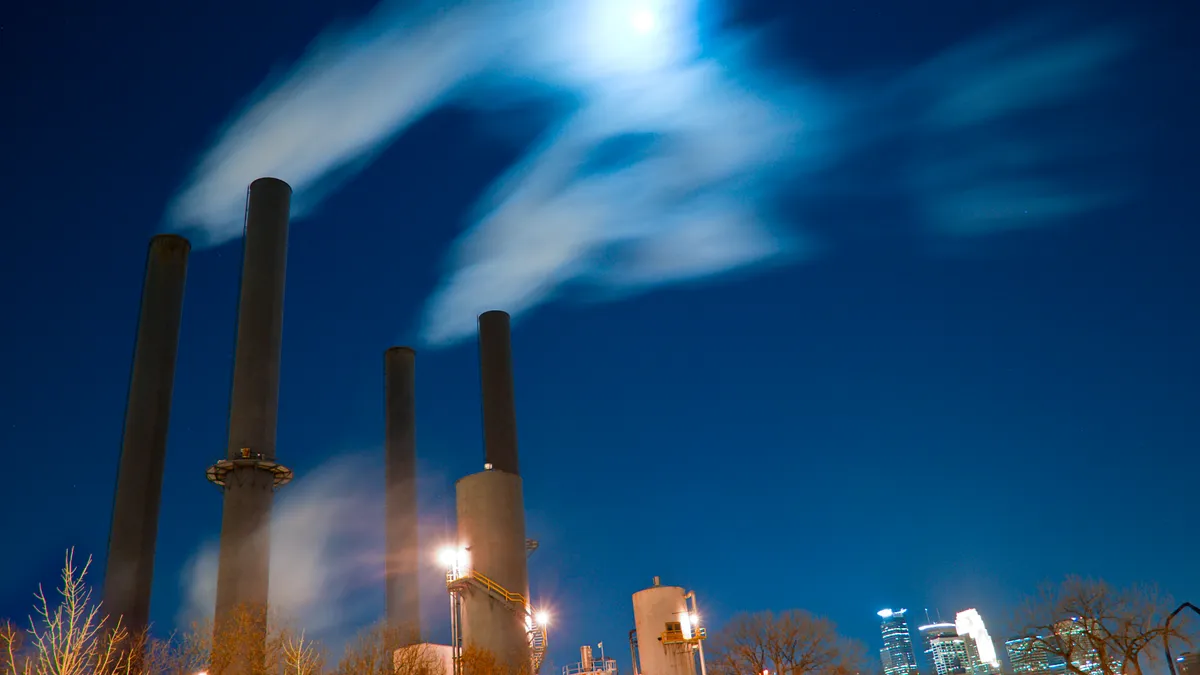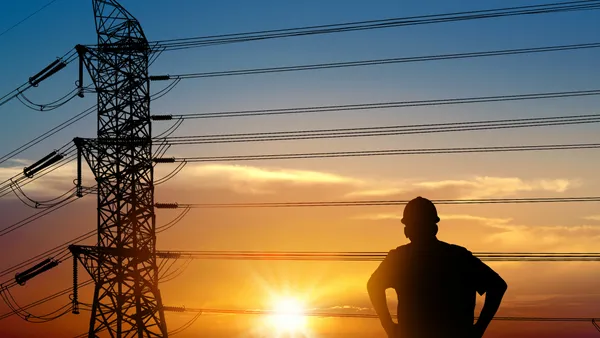Dive Brief:
- The U.S. Court of Appeals for the D.C. Circuit decided to extend a delay in litigation over carbon pollution standards for new power plants, and ordered the U.S. Environmental Protection Agency to file progress updates every 90 days.
- The standards are the first national limits on carbon pollution from new, modified or reconstructed power plants that run primarily on coal, and are in effect now. Those standards largely open the door to carbon capture and storage to help these plants capture part of those emissions.
- The case, North Dakota v. EPA, challenged the legality of those standards, saying carbon capture and storage technology is not an "adequately demonstrated technology" and thus making those standards is unlawful.
Dive Insight:
The delay in litigation is a victory for environmental groups, as the decision allows the standards to remain in full effect as the case weaves its way through the legal system.
"The carbon pollution standards for new, modified, and reconstructed power plants are already working to protect American families and communities from the dangerous pollution that causes climate change,” said Tomás Carbonell, director of regulator policy and lead attorney for Environmental Defense Fund, in a statement. EDF is a party to the case. “Today’s decision allows those standards to remain in full force and effect,” he said.
The court's decision came after they issued an order extending a delay in litigation over the Clean Power Plan, another Obama-era climate regulation that sought to reduce emissions from existing power plants. The order agreed to hold the Clean Power Plan litigation in abeyance another 60 days, but required the EPA to file monthly updates.
Both these orders appear as President Trump has launched a series of reviews on environmental rules, including smog and mercury limits, and the Waters of the United States (WOTUS) rule as part of his campaign promises to roll back Obama-era regulations. Where the rules are under court consideration, the Trump administration has requested judges to delay rulings and hearings while the regulations are reviewed.
In this particular case, the question over carbon capture and storage is especially poignant given the fate of Southern Co.'s Kemper coal-gasification plant. After years of cost overruns and technological mishaps, Southern Co. decided to run the plant only on natural gas. Its failure highlights the struggle new "clean coal" plants face, even as the Trump administration views it as one of its central energy agenda items.
To date, NRG Energy's Petra Nova plant in Texas is the only operating CCS project in the nation. But in contrast to Kemper, it was a retrofit of an existing plant and used off-the-shelf technology, thereby resulting in a much lower pricetag.














